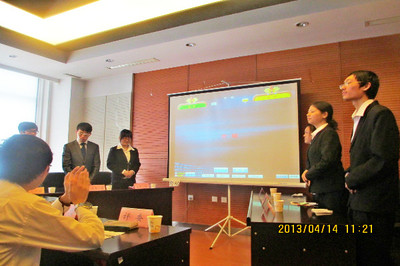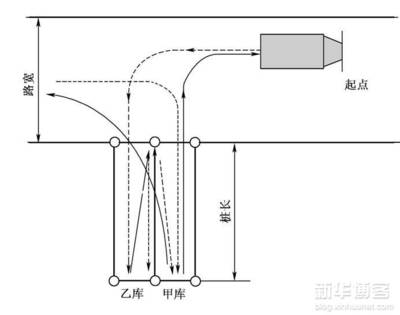中文的辩论赛已经被很多人所崇拜了,那么英语的辩论赛是不是让更多的人望尘莫及呢?今天小编给大家分享一些英语辩论赛中的小技巧,希望对大家有所帮助。
英语辩论赛技巧On DebatingClarity: Avoid use of terms which can be interpreted differently by different readers. When we are talking to people who substantially agree with us we can use such terms as "rednecks" or "liberals" and feel reasonably sure that we will be understood. But in a debate, we are talking to people who substantially disagree with us and they are likely to put a different interpretation on such words.
Evidence: Quoting an authority is not evidence. Quoting a majority opinion is not evidence. Any argument that starts with, "According to Einstein..." is not based on objective evidence. Any argument that starts with, "Most biologists believe..." is not based on objective evidence. Saying, "The Bible says..." is not evidence. Authorities and majorities can be wrong and frequently have been.
Emotionalism: Avoid emotionally charged words--words that are likely to produce more heat than light. Certainly the racial, ethnic, or religious hate words have no place in rational debating. Likewise, avoid argumentum ad hominem. Personal attacks on your opponent are an admission of intellectual bankruptcy. Also, slurs directed at groups with whom your opponent is identified are usually nonproductive. Try to keep attention centered on the objective problem itself. There is a special problem when debating social, psychological, political, or religious ideas because a person's theories about these matters presumably have some effect on his own life style. In other words, rather than saying "and that's why you are such an undisciplined wreck" say, "a person adopting your position is, I believe, likely to become an undisciplined wreck because ..."
Causality: Avoid the blunder of asserting a causal relationship with the popular fallacy of post hoc ergo propter hoc which declares that because some event A happened and immediately afterward event B happened that event A was the cause of event B.(I knew someone whose car stalled on the way to work. She would get out and open the hood and slam it and then the car would start. Singing a song would have been just as effective to allow time for a vapor lock to dissipate!) Also avoid the popular fallacy that correlation proves causation. People who own Cadillacs, on average, have higher incomes than people who don't. This does not mean that if we provided people with Cadillacs that they would have higher incomes.
Innuendo(影射):Innuendo is saying something pejorative about your opponent without coming right out and saying it but by making more or less veiled allusions to some circumstance, rumor, or popular belief. If you want to see some excellent examples of innuendo, watch Rush Limbaugh. Politicians are, unfortunately, frequently guilty of using innuendo. It is an easy way to capitalize on popular prejudices without having to make explicit statements which might be difficult or impossible to defend against rational attack.
Be sure of your facts. What is the source of your information? If it is a newspaper or a magazine, are you sure that the information hasn't been "slanted" to agree with that publication's political bias? Where crucial facts are concerned, it is best to check with more than one source. Often international publications will give you a different perspective than your hometown newspaper. Check to see whether the book you are using was published by a regular publishing company or whether it was published by some special interest group like the John Birch Society or a religious organization. These books cannot be trusted to present unbiased evidence since their motivation for publishing is not truth but rather the furtherance of some political or religious view.
Understand your opponents' arguments. It is good practice to argue with a friend and take a position with which you do not agree. In this way you may discover some of the assumptions your opponents are making which will help you in the debate. Remember that everybody thinks that his position is the right one, and everybody has his reasons for thinking so.
Do not impute ridiculous or malevolent ideas to your opponent.
An example of this is the rhetorical statement, "Have you stopped beating your wife?" This imputes or presupposes that your opponent has beaten his wife. One frequently sees references by conservative speakers and writers to the idea that gay activists want "special privileges." This would be ridiculous if it were true. It isn't true, but speaking as if it were true and well known to all is egregiously unfair to listeners or readers who may not be well informed. It is probably always wise to treat your opponent with respect, even if he doesn't deserve it. If he doesn't deserve respect, this will probably soon become obvious enough.
Regression to the mean(逻辑退化): Another source of error which occurs very frequently is the failure to take into account regression to the mean. This is a bit technical, but it is very important, especially in any kind of social or psychological research which depends upon statistical surveys or even experiments which involve statistical sampling. Rather than a general statement of the principle (which becomes more and more unintelligible as the statement becomes more and more rigorous) an example will be used.

Let's consider intelligence testing.
1. Perhaps we have a drug that is supposed to raise the IQ of mentally retarded kids. So we give a thousand intelligence tests and select the 30 lowest scoring individuals.
2. We then give these low scoring kids our drug and test them again.
3. We find that there has been an increase in the average of their IQ scores.
4. Is this evidence that the drug increased the IQ?
Not necessarily! Suppose we want to show that smoking marijuana lowers the IQ. Well, we take the 30 highest scoring kids in our sample and give them THC and test them again. We find a lower average IQ.
Is this evidence that marijuana lowers the IQ?
Not necessarily! Any statistician knows that if you make some kind of a measurement of some attribute of a large sample of people and then select the highest and lowest scoring individuals and make the same measurement again, the high scoring group will have a lower average score and the low scoring group will have a higher average score than they did the first time. This is called "regression to the mean" and it is a perfectly universal statistical principle.
There are undoubtedly more points to be made here. Suggestions will be gratefully received. Larry has made the following suggestions:
· Apply the scientific method. (运用科学方法)
· Cite relevant personal experience. (合理引用相关的个人经历)
· Be polite. (辩论过程中有礼待人)
· Organize your response. (Beginning, middle, end.) (对你辩词进行合理的组织)
· Treat people as individuals.
· Cite sources for statistics and studies used.
· Literacy works. Break posts into sentences and paragraphs.
· Read the post you are responding to.
 爱华网
爱华网


